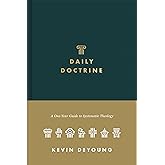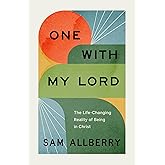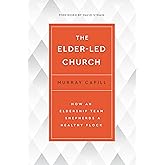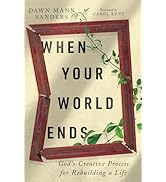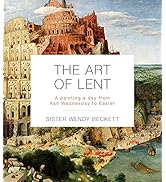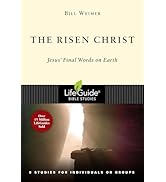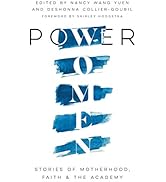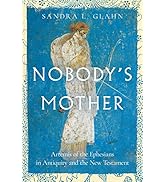
Amazon Prime Free Trial
FREE Delivery is available to Prime members. To join, select "Try Amazon Prime and start saving today with FREE Delivery" below the Add to Cart button and confirm your Prime free trial.
Amazon Prime members enjoy:- Cardmembers earn 5% Back at Amazon.com with a Prime Credit Card.
- Unlimited FREE Prime delivery
- Streaming of thousands of movies and TV shows with limited ads on Prime Video.
- A Kindle book to borrow for free each month - with no due dates
- Listen to over 2 million songs and hundreds of playlists
Important: Your credit card will NOT be charged when you start your free trial or if you cancel during the trial period. If you're happy with Amazon Prime, do nothing. At the end of the free trial, your membership will automatically upgrade to a monthly membership.

Download the free Kindle app and start reading Kindle books instantly on your smartphone, tablet, or computer - no Kindle device required.
Read instantly on your browser with Kindle for Web.
Using your mobile phone camera - scan the code below and download the Kindle app.

Image Unavailable
Color:
-

-
-
- To view this video download Flash Player
-

-

-

-

-
 2 VIDEOS
2 VIDEOS -



 Audible sample
Audible sample Ownership: The Evangelical Legacy of Slavery in Edwards, Wesley, and Whitefield Paperback – June 18, 2024
Purchase options and add-ons
ECPA Top Shelf Book Cover Award
The Gospel Coalition Book Awards Award of Distinction–History and Biography
Men of their time?
Jonathan Edwards, John Wesley, and George Whitefield were the three most prominent early evangelicals―and all three were deeply compromised on the issue of slavery. Edwards and Whitefield both kept slaves themselves, and Wesley failed to speak out against slavery until near the end of his life.
In Ownership, Sean McGever tells the true story of these men's relationships to slavery: a story that has too often been passed over or buried in scholarly literature. Laying out the dominant attitudes among Christians toward slavery at the time, McGever sets these "men of their times" in their own context, inviting us to learn how these shapers of American evangelicalism contributed to the tragic history of racism in America. He also explores how Christians finally began to recognize that slavery, which they'd excused for most of Christian history, is actually wrong. It's a story that white evangelicals must wrestle with today.
Ownership is more than a book of history. It's an invitation to examine our own legacies and to understand―and take ownership of―both our heritage and our own part in the story.
- Print length240 pages
- LanguageEnglish
- PublisherIVP
- Publication dateJune 18, 2024
- Dimensions5.5 x 0.58 x 8.5 inches
- ISBN-101514004151
- ISBN-13978-1514004159
Book recommendations, author interviews, editors' picks, and more. Read it now.
Frequently bought together

Customers who viewed this item also viewed
From the brand

-
Women's History Month
-
Prepare for Lent
-
Meet Saint Patrick
-
Start a New Bible Study
-
Recommended Books
-
Books to Read with Your Kids
-
Ebooks on Sale
-

Who Are We?
Since 1947, InterVarsity Press (IVP) has been publishing thoughtful Christian books that shape both the lives of readers and the cultures they inhabit. Throughout these seventy-five years, our books and authors have established a legacy of speaking boldly into important cultural moments, providing timeless tools for spiritual growth, and equipping Christians for a vibrant life of faith.
Editorial Reviews
Review
"Among the tragic inheritances of the English Dissenters in America are the oppressive inequities they built and perpetuated around race and ethnicity, the dispossession of Indigenous peoples, and the condoning and expansion of enslavement. If Whitefield, Wesley, and Edwards were not 'founding fathers' of the United States, they were spiritual founders of America's evangelical tradition. These figures' involvement in, support for, or silence about the sin of slavery need to be confronted and owned without attempts to make excuses for them. McGever's work is part of the critical work of reassessing claims about our origins as a 'Christian nation.'" -- Kenneth P. Minkema, Jonathan Edwards Center at Yale University
"This book is unusually well researched (showing that Wesley, Edwards, and Whitefield actively or passively supported slavery even after Quaker Bible believers had published solid arguments showing the system's evil). It is patiently argued (bending over backward to explain charitably why these landmark evangelicals acted as they did). It is also painstakingly self-reflective (asking, If we condemn earlier Christians for unthinking support of their society's evil, what evils might we be supporting unthinkingly today?). The result is unusual clarity about the past and, even more, a compelling imperative for examining our own lives today." -- Mark Noll, author of America's Book: The Rise and Decline of a Bible Civilization, 1794–1911
"This carefully researched book invites evangelicals as well as all Protestants to consider the tragic positions that Jonathan Edwards, George Whitefield, and John Wesley held on slavery. While Wesley eventually condemned slavery, it was due to the influence of the Quakers and after both Edwards and Whitefield had died. Sean McGever is to be commended for his convicting treatment that not only challenges readers that all heroes of the church are redeemed sinners but also shows how we have perception gaps and may be missing issues that will look obvious to future Christians. This book deserves a wide circulation to foster the needed conversations for our current day." -- Tom Schwanda, author of The Emergence of Evangelical Spirituality: The Age of Edwards, Newton, and Whitefield
"In this revealing book, Sean McGever sensitively delves into the complicated history of the relationship between evangelical Christianity and slavery by examining the lives and words of its three renowned founders: John Wesley, George Whitefield, and Jonathan Edwards Sr. A trumpet call for American Christians to honestly examine history, it is a must-read for all evangelicals who wish to confront the legacy of slavery and racism in our society today." -- Manisha Sinha, Draper Chair in American History at the University of Connecticut and author of The Slave's Cause: A History of Abolition
"Sean McGever offers a comprehensive account of the extent to which these celebrated religious figures practiced or accepted the enslavement of Africans. While not excusing them as 'men of their time,' McGever reminds us that, instead of feeling self-righteous, we should consider the moral perception gaps that we may have today."
-- McGever reminds us that, instead of feeling self-righteous, we should consider the moral perception gaps that we may have today."br />"Sean McGever offers a comprehensive account of the extent to which these celebrated religious figures practiced or accepted the enslavement of Africans. While not excusing them as 'men of their time,' McGever reminds us that, instead of feeling self-righteous, we should consider the moral perception gaps that we may have today."
-- McGever reminds us that, instead of feeling self-righteous, we should consider the moral perception gaps that we may have today.""Sean McGever's Ownership offers a timely discussion of a most perplexing issue: early evangelicals' involvement with slavery. McGever's thought-provoking analysis is thoroughly historical, and yet it also considers how Christians today can apply such difficult lessons from the past." -- Thomas S. Kidd, research professor of church history at Midwestern Baptist Theological Seminary
"Sean McGever offers a comprehensive account of the extent to which these celebrated religious figures practiced or accepted the enslavement of Africans. While not excusing them as 'men of their time,' McGever reminds us that, instead of feeling self-righteous, we should consider the moral perception gaps that we may have today." -- George Marsden, professor emeritus of history at the University of Notre Dame and author of An Infinite Fountain of Light: Jonathan Edwards for the Twenty-First Century
"The lessons of McGever’s book should aid the church as it pursues the Reformation emphasis of semper reformanda, 'always reforming' according to the Word of God." -- Robert W. Caldwell III, Christianity Today
About the Author
Sean McGever (PhD, University of Aberdeen) is an area director for Young Life in Phoenix, Arizona, and adjunct faculty at Grand Canyon University. He is the author of several books, including Born Again: The Evangelical Theology of Conversion in John Wesley and George Whitefield and Evangelism: For the Care of Souls.
Vincent E. Bacote (Ph.D., Drew University) is assistant professor of theology at Wheaton College in Wheaton, Illinois. He is the author of The Spirit in Public Theology: Appropriating the Legacy of Abraham Kuyper (Baker) and a contributor to The Gospel in Black and White (IVP), The Dictionary for the Theological Interpretation of the Bible (Baker) and Best Christian Writing 2000 (HarperCollins). His work has also appeared in such publications as Re:generation Quarterly, Urban Mission, Christianity Today and Journal for Christian Theological Research.
Product details
- Publisher : IVP (June 18, 2024)
- Language : English
- Paperback : 240 pages
- ISBN-10 : 1514004151
- ISBN-13 : 978-1514004159
- Item Weight : 10.4 ounces
- Dimensions : 5.5 x 0.58 x 8.5 inches
- Best Sellers Rank: #889,873 in Books (See Top 100 in Books)
- #2,824 in Discrimination & Racism
- #3,997 in History of Christianity (Books)
- #5,017 in Christian Church History (Books)
- Customer Reviews:
Videos
Videos for this product

0:11
Click to play video

Ownership by Sean McGever
Intervarsity Press
About the author

Sean McGever (PhD, University of Aberdeen) is an Area Director for Young Life in Phoenix, Arizona, and an adjunct faculty at Grand Canyon University. He speaks, teaches, and ministers across the United States, Canada, and the UK.
Customer reviews
Customer Reviews, including Product Star Ratings help customers to learn more about the product and decide whether it is the right product for them.
To calculate the overall star rating and percentage breakdown by star, we don’t use a simple average. Instead, our system considers things like how recent a review is and if the reviewer bought the item on Amazon. It also analyzed reviews to verify trustworthiness.
Learn more how customers reviews work on AmazonCustomers say
Customers find the book thought-provoking, with one noting it provides great questions for self-reflection. The storytelling receives positive feedback, with customers describing it as compelling.
AI-generated from the text of customer reviews
Select to learn more
Customers find the book thought-provoking, with one customer noting it provides great questions for self-reflection, while another mentions it is well-researched and deeply relevant for today's readers.
"...Careful in his historical presentation, he details the atrocities of both the international slave trade and the cruelties endured by the enslaved..." Read more
"...He draws history into the present for the sake of change that impacts the future. Will we be remembered as people of our time?" Read more
"...our own journey of confronting our systems, beliefs and actions in a graceful yet convicting way that McGever naturally does so well...." Read more
"...a combination of personal anecdotes, practical advice, and Biblical insights, McGever crafts a narrative that is both compelling and deeply relevant..." Read more
Customers appreciate the storytelling of the book, finding it compelling and convicting.
"...McGever is a captivating storyteller as he shares the history of Edwards, Wesley, and Whitfield and their relationships with and to slavery, and..." Read more
"...of confronting our systems, beliefs and actions in a graceful yet convicting way that McGever naturally does so well...." Read more
"...and Biblical insights, McGever crafts a narrative that is both compelling and deeply relevant for today’s readers." Read more
"Amazing truths and perspectives on how the Church viewed slavery from the author!!!!!!!..." Read more
Reviews with images
McGever’s Most Challenging Work Yet
Top reviews from the United States
There was a problem filtering reviews. Please reload the page.
- Reviewed in the United States on June 28, 2024The author analyzes how John Wesley changed his opinion on the morality of the institution of slavery later in life and contrasts Evangelical contemporaries George Whitfield and Jonathan Edwards who both owned and justified the enslavement of Black Africans in that era. Careful in his historical presentation, he details the atrocities of both the international slave trade and the cruelties endured by the enslaved and Edwards's and Whitefield's acceptance of and personal use of the institution. Wesley had the benefit of outliving both Edwards and Whitefield and became convinced to speak up as the Abolitionist movement, spurred on by Quakers and others in the 1770s, took off. Interestingly, Wesley did not then use Scripture to oppose slavery but instead used ideas from natural law and reasoning, leaving the scriptural debate to others. Wesley had the advantage of time to change his perspective and to speak up at the right moment.
The author concludes with suggestions to promote readers personal growth in understanding issues, noting we all develop our understandings. We are not the same people we were 10 or 20 years ago. He encourages reflective assessments with a series of questions and notes his own evolution in some areas.This could be a great text for group discussion to understand how developing theology can impact our own growth and witness in today's world.
I first listened to the audio which is very well done. I realized though I had to have a print copy for the footnotes and references as this subject has become a matter of study for me. I have found the popular Evangelical apologetic on slavery unsatisfactory and this book is the first honest presentation on slavery from an Evangelical perspective I've encountered. Highly recommended.
- Reviewed in the United States on August 13, 2024This is a well-researched book shared in a compelling way. McGever is a captivating storyteller as he shares the history of Edwards, Wesley, and Whitfield and their relationships with and to slavery, and provides great questions for the reader for self-reflection. He draws history into the present for the sake of change that impacts the future. Will we be remembered as people of our time?
- Reviewed in the United States on July 20, 2024We all, at some point, wrestle with honoring our hero’s while being confronted with their sinful imperfect human nature. McGever’s latest work addresses just this! More importantly this text guides the reader through our own journey of confronting our systems, beliefs and actions in a graceful yet convicting way that McGever naturally does so well. What an important book looking to the past to impact today!
 5.0 out of 5 starsWe all, at some point, wrestle with honoring our hero’s while being confronted with their sinful imperfect human nature. McGever’s latest work addresses just this! More importantly this text guides the reader through our own journey of confronting our systems, beliefs and actions in a graceful yet convicting way that McGever naturally does so well. What an important book looking to the past to impact today!
5.0 out of 5 starsWe all, at some point, wrestle with honoring our hero’s while being confronted with their sinful imperfect human nature. McGever’s latest work addresses just this! More importantly this text guides the reader through our own journey of confronting our systems, beliefs and actions in a graceful yet convicting way that McGever naturally does so well. What an important book looking to the past to impact today!McGever’s Most Challenging Work Yet
Reviewed in the United States on July 20, 2024
Images in this review
- Reviewed in the United States on August 14, 2024"Ownership" is a thought-provoking exploration of how taking responsibility for our actions can transform not just our lives but our relationships and communities as well. Through a combination of personal anecdotes, practical advice, and Biblical insights, McGever crafts a narrative that is both compelling and deeply relevant for today’s readers.
- Reviewed in the United States on July 14, 2024I read Ownership by Sean McGever with an eye on how he handles the topic of discernment, even though the word discernment was not the focus. Over the past year, I have read about a dozen books on discernment, trying to grapple with the purpose and limitations of Christian discernment. One of the reasons for starting this project was reading Henri Nouwen’s book Discernment and how he grappled with discernment for himself. I am not going to rehash that post again, but while Nouwen received spiritual guidance and help from a pair of priests, after the death of all three and about ten years after the book was published, it became more widely known that the two priests that Nouwen confided in were serial sexual and spiritual abusers. Nouwen described them as some of the most holy men he had known. Nouwen’s discernment about those men is a good reminder of the limitations of our discernment, but also that historical judgment and tools can be helpful as a means of helping to see our natural limitations of perspective.
McGever makes the simple but important point that our geographic and social location impacts our decision-making (and discernment) because it impacts how we see choices. None of Edwards, Whitfield, or Wesley’s grandparents owned slaves because the slave trade was not yet in wide effect. However, the difference between whether their grandchildren owned slaves was significantly impacted by whether they were in England or the US. Geography and social location always impact choices.
In his discussion of Whitfield’s creation of the orphanage, he presents Whitfield’s positive reasons for doing so. There were orphans, and those orphans needed care. The colony administrators were willing to give the orphanage start-up land and some start-up money. Whitfield and the colony administrators assumed that the orphanage would be self-sufficient after the initial startup.
My day job is as a non-profit consultant. One trend in non-profit grant-making since the early 2000s is that there needs to be a plan for sustainability as part of a grant. But non-profits, by definition, are not profit-making organizations. After-school programs do not generate revenue if they are primarily serving at-risk students. Clinics serving homeless youth don’t make money on the side without violating the organization’s main mission. But this is exactly the problem that Whitfield got into.
Whitfield needed to make money by finding a crop or business that the orphanage could do to pay for the ongoing costs of running the orphanage. They started with White indentured servants. Then, they started relying on the orphans themselves to do labor on cash crops. Eventually, Whitfield and the administrators lobbied to change the law of the state of Georgia so that they could have African slaves work to make the orphanage self-supporting.
On Twitter the other day, there was a thread about how ethical choices don’t just need ethical ends but also need ethical means to get to those ends. Whitfield had ethical ends (care of orphans), but once in the weeds of the organization, he eventually moved to unethical means because the ethical means he tried hadn’t worked. This is often where discernment falters because when things seem not to be working but you still feel called to continue, there is a temptation to move to unethical means or change our ethics to allow for what we previously considered unethical.
I think you can summarize this argument about Whitfield’s change in understanding of slavery as his theology changed because of his economic interests, not that his theology influenced his economic interests. This generally fits with the arguments of a wide variety of others. Edward Baptist studies the economics of slavery and thinks that the justification and expansion of slavery were largely a result of the economic success of slavery. Joel McDurmon, a lawyer studying the legal construction of slave law in Christian American colonies, largely concludes that economic interests drove legal changes, not that legal changes led to economic results. Akhil Reed Amar, a constitutional scholar writing about the US Constitution and slavery, points out that those opposed to slavery had many opportunities to oppose the expansion of slavery, but for the most part, their economic interests meant that they opposed slavery as an ideology, but they did not put feet to those beliefs and because it was against their economics interests.
Jonathan Edwards, until recently, was not evaluated for owning slaves. Within the past couple of decades, as interest in Edwards has increased, there have been recent documents that have raised questions about his understanding of slavery. Edwards does seem to have changed his views toward the insinuation of slavery, but not owning slaves. He bought at least one slave directly from a slave ship but eventually came to view the slave trade as immoral, but not slavery as a whole. There was some change, but not much.
The third subject is John Wesley. Wesley did come to an abolitionist position, but not until near the end of his life. He was slightly older than both Edwards and Whitfield but lived about two decades longer than both. Wesley had direct experience with slavery when he was in Georgia and was familiar with the institution of slavery more abstractly before that point. He argued for the education, especially Christian education, of slaves but not initially against the institution of slavery as a whole. Wesley did challenge Whitfield about owning slaves but did not break the relationship over slavery and argued against ending the institution of slavery.
McGever believes, and I think he is right, that had Wesley grown up in America or come to America for a longer time, Wesley may have also eventually owned slaves and never come to his late-in-life abolitionist position. Had Edwards or Whitfield lived longer or had different social circumstances, they may have come to similar conclusions as Wesley did later in life. Our social circumstances do not excuse our individual choices, but they do influence them.
I think many reading this book may not be aware of the basic facts in the first 80 percent of the book. So, that initial 80 percent is important to lay out the facts that McGever is dealing with to get to the main focus in the last 20 percent. In the last 20 percent of the book, there is an evaluation of how to think about the three, not just as a historically distant evaluator but as a Christian who shares in the legacy of all three. McGever directly tries to help us, as modern readers, see ourselves in all three. He is trying to help us see that we all have the capacity to have cultural blind spots, but we also can overcome those cultural blindspots by listening to others and history.
Quakers and others of this era strongly resisted slavery and not only worked toward its end but also made financial and other sacrifices because of their Christian convictions. More than the other two, Wesley was willing to listen to this minority report and learn from it. But it did take Wesley years to change, and even while he did change, his change was late enough that some of the institutional inertia of Methodism did not oppose slavery and did not fight for the full humanity of Black Christians, especially in the US, leading to the eventual split of Methodism and the institutional dehumanization of its Black members, as illustrated by Richard Allen and Absolum Jones.
I would have liked to have an explicit discussion of discernment and the ways that historical events and understanding can inform Christian discernment, but even without an explicit discussion of discernment, I think that this is a helpful exercise that will lead to better discernment for those willing to read and understand what Sean McGever is trying to do here.
- Reviewed in the United States on August 28, 2024I greatly appreciated this book as it helped me to better understand the sources of evangelical defenses of slavery in America in the past as well as interpretations for modern slavery in all its current forms and manifestations.
- Reviewed in the United States on July 29, 2024This is more than a thoughtful analysis of three evangelical icons in their relationship to slavery; it concludes with a helpful framework for the reader to reflect on his or her own formation and attitudes in relationship to the larger culture.
- Reviewed in the United States on July 26, 2024I read this book cover to cover in one reading session.








